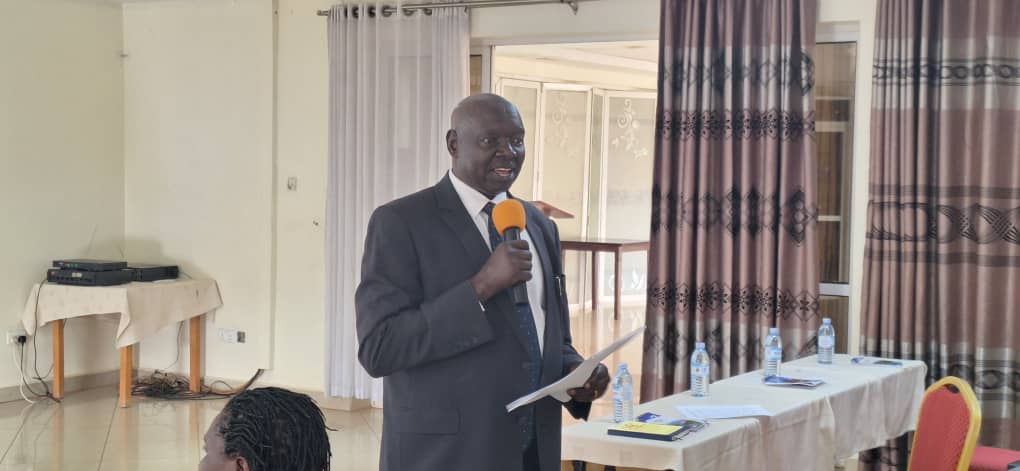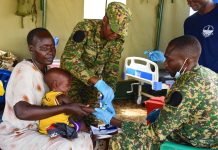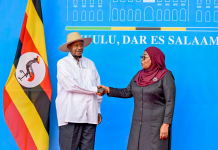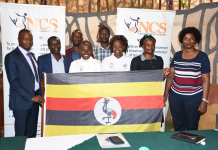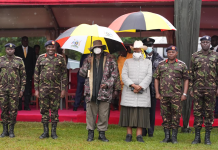The Senior Presidential Advisor-Mobilization, Lt. Col. Kibrai Ambako has implored the Resident District Commissioners (RDCs) and Resident City Commissioners (RCCs) to embrace revolutionary methods of work if they want to achieve progressive change in their respective districts and cities.
“Revolutionary methods of work are ways and channels that are used and followed, in line with acceptable norms and belief that can enable knowledge and understanding of opportunities and risks, to be able to achieve change,” he said.
Lt. Col. Ambako made the remarks today during the opening of a 3- day capacity building retreat for RDCs/RCCs, DRDCs/DRCCs, ARDCs/ARCCs, RISO and DISOs in Acholi sub-region held at Boma Hotel, Gulu City.
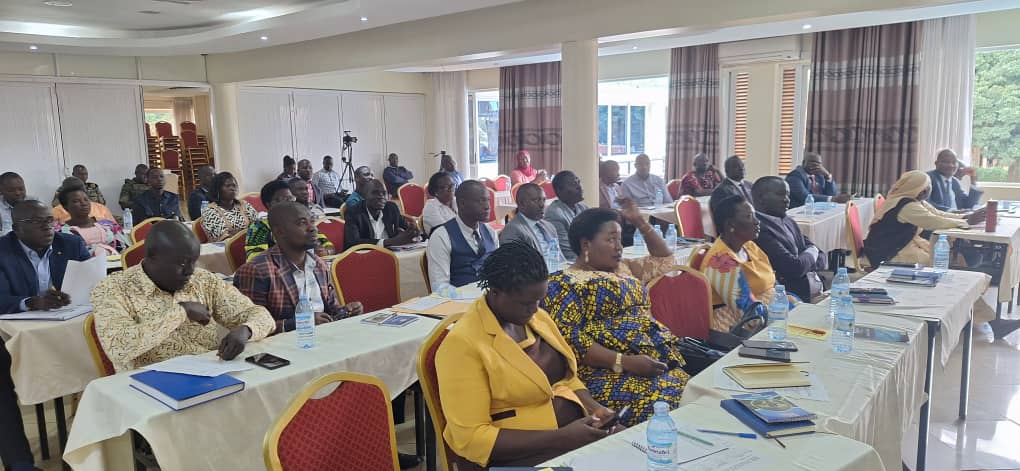
Lt. Col. Ambako further expounded that the methods are complex, tedious and tiresome and they involve cadre development and capacity building aimed at instilling discipline, teamwork, transparency and accountability among masses.
“The methods are used with courage, fearlessness, with violence to push crazy ideas that no one can willingly go for, against the status-quo, to achieve radical change,” he said.
“The methods are further used to dispel and counter diversionary, negative and subversive tendencies towards achieving set goals for the common good.”
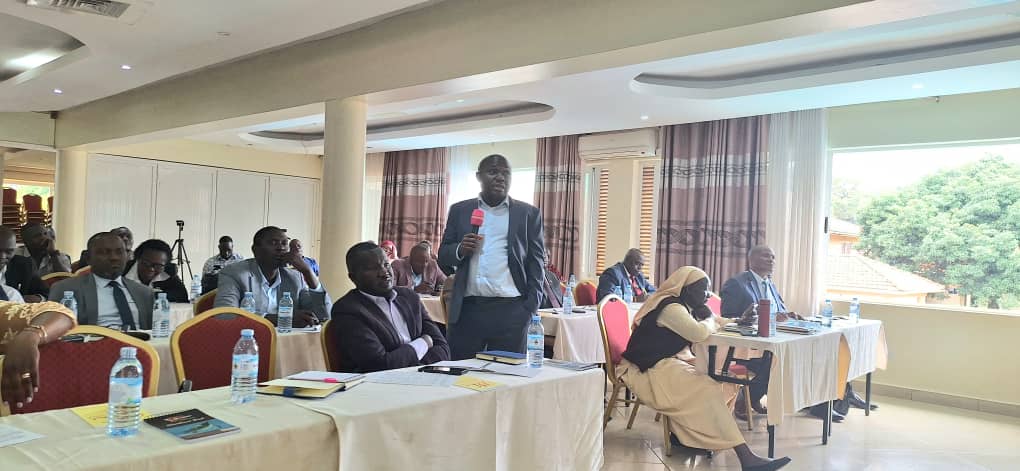
On the other hand, Lt. Col. Ambako revealed that the National Resistance Movement (NRM) government came into power after a successful revolution in 1986 and it has used revolutionary methods of work to develop the country.
“Since 1986, the NRM has consolidated the people’s victory and has registered massive achievements in the recovery and transformation of Uganda’s economy, peace and security, infrastructure, social/culture and political programs,” he said.
“To register the achievements, the revolution has been and still being guided by the vision, mission, strategic objectives and the use of revolutionary methods of Works. Revolutionary methods of work are the methods, skills, tools and tactics that are determined and employed after understanding the operational situation in a given area or an environment to cause a progressive change.”
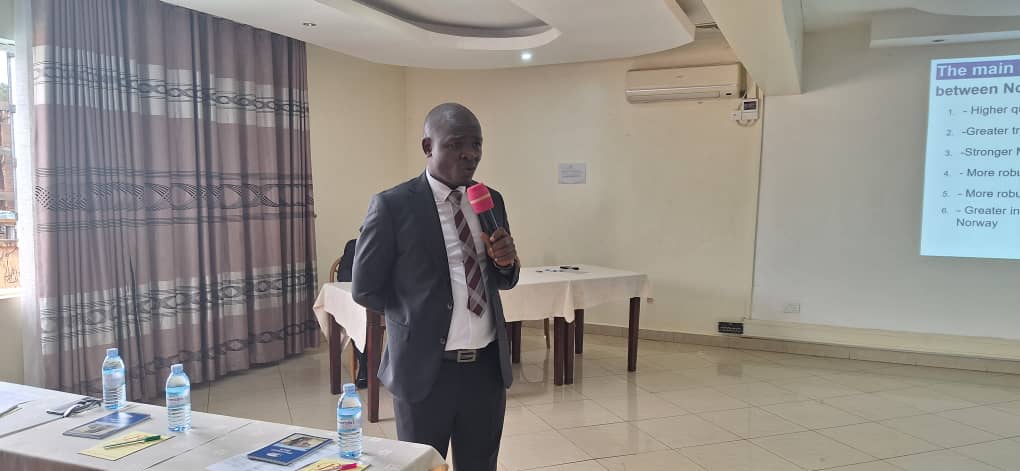
Lt. Col. Ambako added that revolutionary methods of work are very important in facilitating operationalization of mandates and offering leadership to address concerns, achieve service delivery, socio-economic transformation and democracy towards securing the future of citizens.
The Deputy Director General of Internal Security Organization (ISO), Col. Emmy Katabazi called for teamwork among the RDCs and DISOs to ensure that they fulfill their mandate.
“Our Commander-In-Chief requires us to implement his work. Part of the problems we have in our districts amidst you are social relations. You hear an RDC and the DISO don’t see eye to eye. An RDC must be seen as a Saint in his area of jurisdiction. You should avoid these problems and work together,” he said.
Col. Katabazi also urged the RDCs to monitor government programs like Parish Development Model (PDM) and Universal Primary Education (UPE) to ensure effective service delivery in their respective districts and cities.
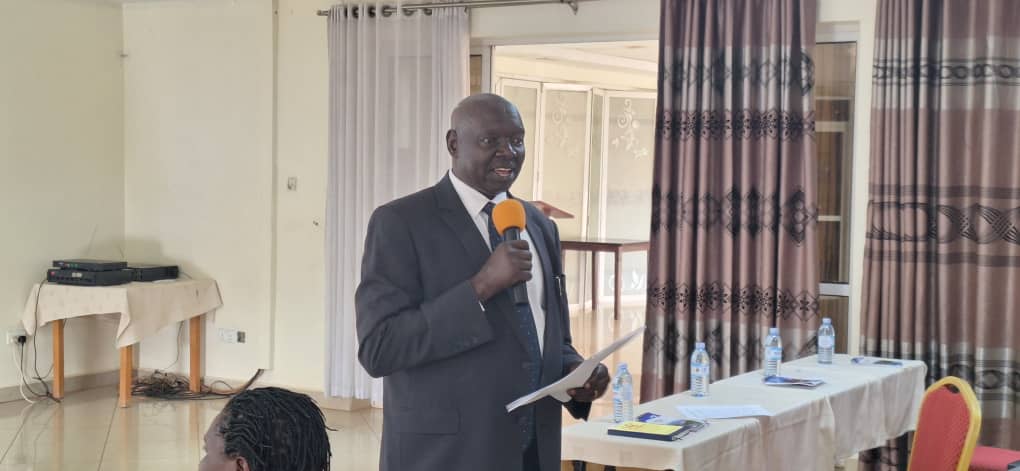
“You are supposed to monitor government programs that is why you are sent to a district to represent the President,” he urged.
On his part, the Assistant Commissioner- Finance and Planning- Office of the President, Hajji Sadat Kisuyi tipped RDCs on how to be efficient managers in their offices.
“You should be able to know what needs to be done and how it should be done,” he said.
Hajji Kisuyi explained that management involves five key activities which include; planning, organizing, staffing, directing and coordination.
“Management is me being able to deliver through others. It involves planning, prioritising and checking that the right work is being achieved,”Hajji Kisuyi noted.
“An efficient manager motivates and inspire people to work with zeal and confidence.”
Hajji Kisuyi further noted that managing others and through others calls for multiplicity of skills that one must have so as to achieve effective organizational management as RDC.
“One to be effective and efficient in managing others, they should have the technical, conceptual and interpersonal skills.”
He also emphasised teamwork among officials in the Office of the RDC, saying that this helps individuals to accomplish more than what they could do alone, thus promoting efficiency.
“Teamwork can be instilled into organizational culture with time and focused leadership,” he asserted.
“For one to be effective and efficient, one needs to be proactive, begin with the end in mind, think win-win, synergize and learn from previous experience.”
Prof. Sudi Nangoli, the Managing Director of Uganda Printing and Publishing Corporation (UPPC) informed the participants that Monitoring and Evaluation plays an important role in the development of a country.
Prof. Nangoli also tipped the RDCs on the best ways they can effectively perform Monitoring and Evaluation in their areas of jurisdiction.
He advised that whenever they go for Monitoring and Evaluation, they must have a working framework, be transparent and accountable.
“Work as a team to achieve the desired goal of Monitoring and Evaluation. When I was doing my research I found out that 50 percent of the data we get in Uganda is wrong. Quality of data is key in decision making,” he said.
He however decried the ineffectiveness of stakeholders in the country when it comes to monitoring and Evaluation of activities.
“Uganda ranks 127 out of 190 countries, according to World Bank Global M&E Index report 2022. Uganda scores 42 percent whereas Norway which ranks the best scores 95 percent,” he said.
“A report by the Ministry of Finance (2020) found that less than 0.5 percent of the annual budget goes to Monitoring and Evaluation yet over 30 percent of the country’s budget goes to waste. Only 2 in every 10 Ugandans are aware of Monitoring and Evaluation activities.”


